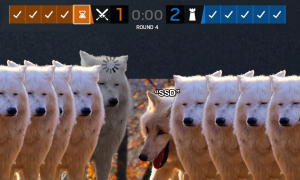Lag: Difference between revisions
MoNoLidThZ (talk | contribs) (Created page with "thumb|คอมกาก Lag vs. Rage: Video Games don't make people violent, Lag does. The debate over the impact of violent video games on player behavior has raged for decades. However, a different culprit often lurks behind outbursts of frustration in online gaming: lag. Lag, also known as latency, refers to the delay between an action taken by a player and the response displayed on their screen. This seemingly technical issue can significantly...") |
(No difference)
|
Latest revision as of 17:55, 24 April 2024
Lag vs. Rage: Video Games don't make people violent, Lag does.
The debate over the impact of violent video games on player behavior has raged for decades. However, a different culprit often lurks behind outbursts of frustration in online gaming: lag. Lag, also known as latency, refers to the delay between an action taken by a player and the response displayed on their screen. This seemingly technical issue can significantly impact the gameplay experience, leading to anger and even aggression in some players.
Understanding Lag:
Imagine throwing a punch in a fighting game. Ideally, your character throws the punch instantly when you press the button. However, with lag, there's a delay between your button press and the punch appearing on-screen. This delay can be a fraction of a second, but in fast-paced online games, even a minor delay can be the difference between victory and defeat.
Causes of Lag:
Several factors can contribute to lag:
- High ping: This refers to the time it takes for a data packet to travel from your computer to the game server and back. Distance from the server, internet congestion, and a weak internet connection can all increase ping.
- Server overload: When a server is overloaded with too many players, it can struggle to process information quickly, leading to lag for everyone connected.
- Hardware limitations: Insufficient processing power or outdated hardware in your computer can also contribute to lag.
The Frustration Factor:
Lag disrupts the natural flow of the game, creating a sense of disconnect between player input and on-screen action. Imagine aiming your weapon at an opponent only for the game to register your shot milliseconds too late, resulting in their victory despite your perfect aim. This constant battle against unresponsive controls can be incredibly frustrating, leading to outbursts of anger or rage.
Games vs. Lag: The Real Culprit
While violent video games might present violent scenarios, the games themselves don't directly cause players to become violent. However, the frustration caused by lag can trigger negative emotions. This frustration might manifest as aggressive language towards teammates or opponents, or even lead to throwing matches or quitting the game entirely.
Solutions to Lag:
- Upgrade your internet connection: A faster and more stable internet connection can significantly reduce lag.
- Reduce background applications: Closing unnecessary programs running in the background can free up processing power and improve performance.
- Choose servers closer to your location: Playing on servers geographically closer to you can minimize ping times.
- Upgrade your hardware: If your computer struggles to keep up with the demands of online gaming, consider hardware upgrades.
By understanding the causes and consequences of lag, both developers and players can work towards creating a more enjoyable online gaming experience. Developers can strive for server optimization and offer regional servers to minimize ping. Players can prioritize a stable internet connection and prioritize hardware that can handle online gaming demands. Ultimately, by reducing lag, we can create a less frustrating and more positive online gaming environment for everyone.
